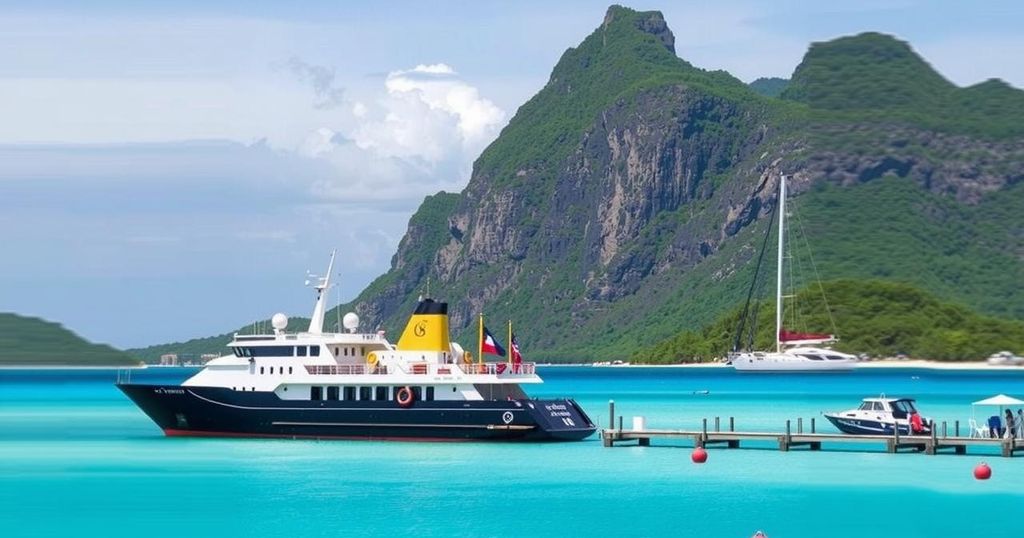The UK government insists on finalizing an agreement regarding the Chagos Islands with Mauritius, despite new demands for better terms from the Mauritian government. The plan involves UK sovereignty transfer while retaining military base access. Opposition leaders express concerns about national security and international relations, notably with the incoming Trump administration, as discussions continue regarding the islands’ future.
The UK government has reaffirmed its commitment to finalizing an agreement concerning the future of the Chagos Islands with Mauritius, despite new demands from the Mauritian Prime Minister for improved terms. The proposed arrangement would entail the UK transferring sovereignty of the islands while retaining a 99-year lease of the significant military facility located on Diego Garcia. Foreign Office Minister Stephen Doughty asserted that this deal serves the interests of both nations, despite rising concerns expressed by opposition figures and political leaders in the context of the recent electoral changes in Mauritius.
The Mauritian parliament has indicated a necessity for alterations to the initial agreement established prior to a significant governmental shift in Mauritius, but the specifics of the requested changes have not been disclosed. In light of these developments, opposition leader Dame Priti Patel criticized the government for potentially jeopardizing national security. Meanwhile, Doughty contended that the deal would bolster UK defense interests and expressed confidence in the terms being beneficial for both parties. Furthermore, he highlighted existing safeguards to prevent other nations from establishing military presence in proximity to the islands.
Moreover, there is a growing apprehension regarding the deal’s implications for international relations, particularly among US political circles. Reform UK leader Nigel Farage voiced skepticism about the deal’s acceptance within the Trump administration, pointing out fears of it enhancing China’s strategic foothold in the region. He suggested that the exiled Chagossians should have a voice in the agreement through a referendum. Doughty, however, emphasized that the deal aligns with national security interests and has garnered approval from American and Indian entities.
The situation remains complex, with Mauritius historically asserting that it was coerced into relinquishing the islands for independence from British governance. International bodies have increasingly sided with Mauritius regarding its claims, resulting in heightened diplomatic pressures on the UK government to resolve the long-standing sovereignty dispute.
The Chagos Islands dispute remains a significant geopolitical issue, centered around the UK’s historical leasing of Diego Garcia to the United States for military purposes. The islands were forcibly depopulated in the 1960s, an act for which the UK has since apologized. Mauritius seeks to reclaim sovereignty over the islands, a situation complicated by international law and the UK’s strategic military interests. Recent elections in Mauritius have brought new leadership advocating for better terms in the negotiations with the UK, adding urgency to the ongoing discussions. Furthermore, historical decisions made under prior administrations continue to impact diplomatic relations between the nations involved.
In conclusion, the UK government is navigating a delicate situation regarding the Chagos Islands deal with Mauritius. While asserting the deal remains advantageous for both nations, opposition voices express deep concern over national security implications and international relations. With the changing political landscape in Mauritius and the upcoming US administration, the negotiations could see further adjustments. Ultimately, the resolution of the Chagos Islands situation will require careful deliberation and an understanding of both historical grievances and contemporary geopolitical dynamics.
Original Source: www.bbc.com






